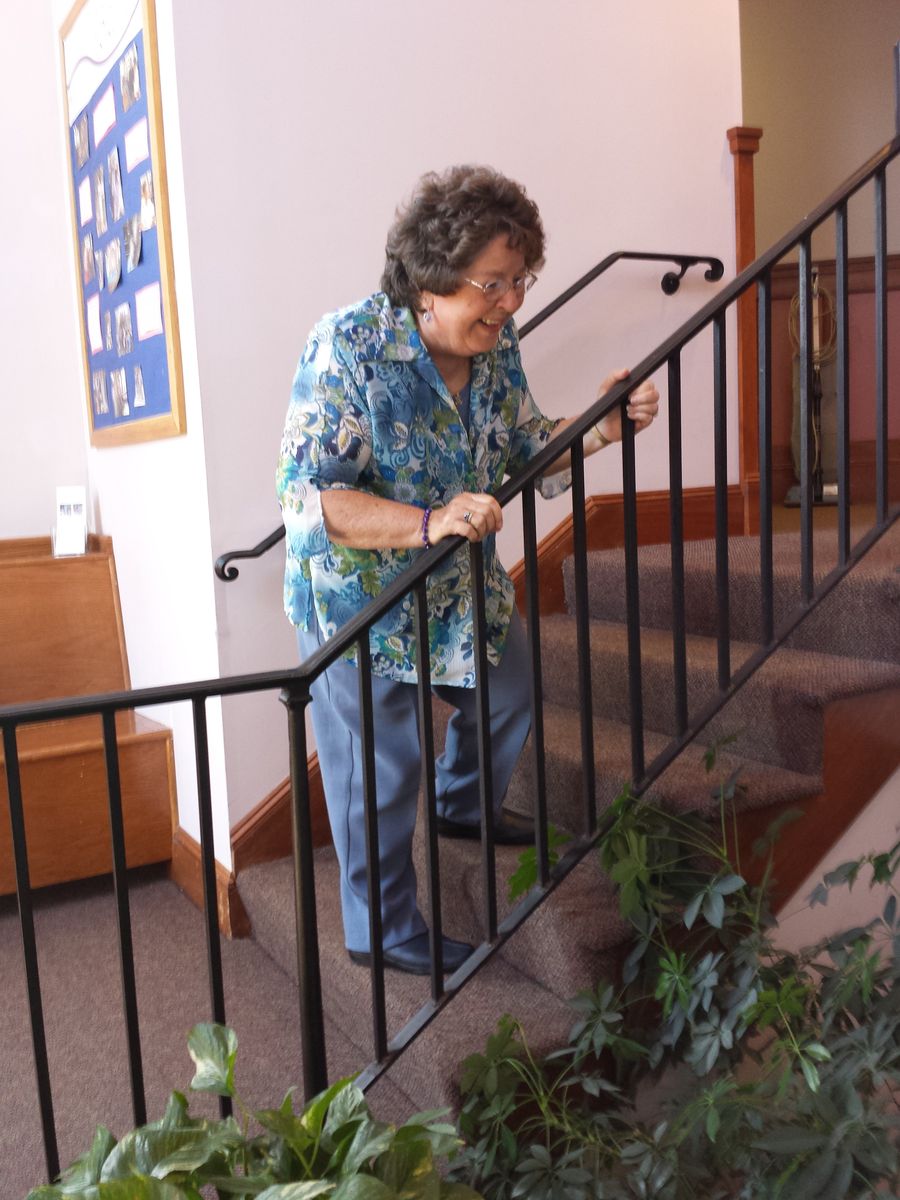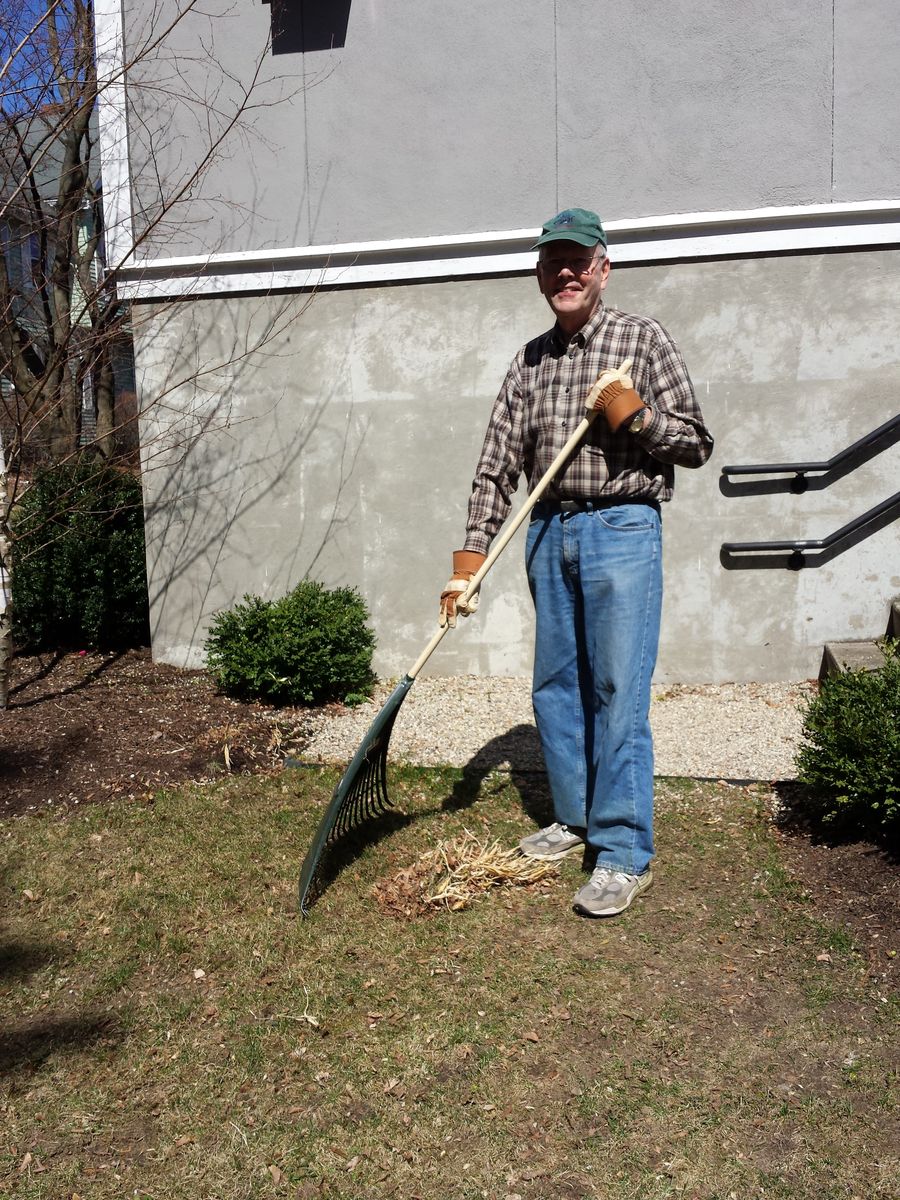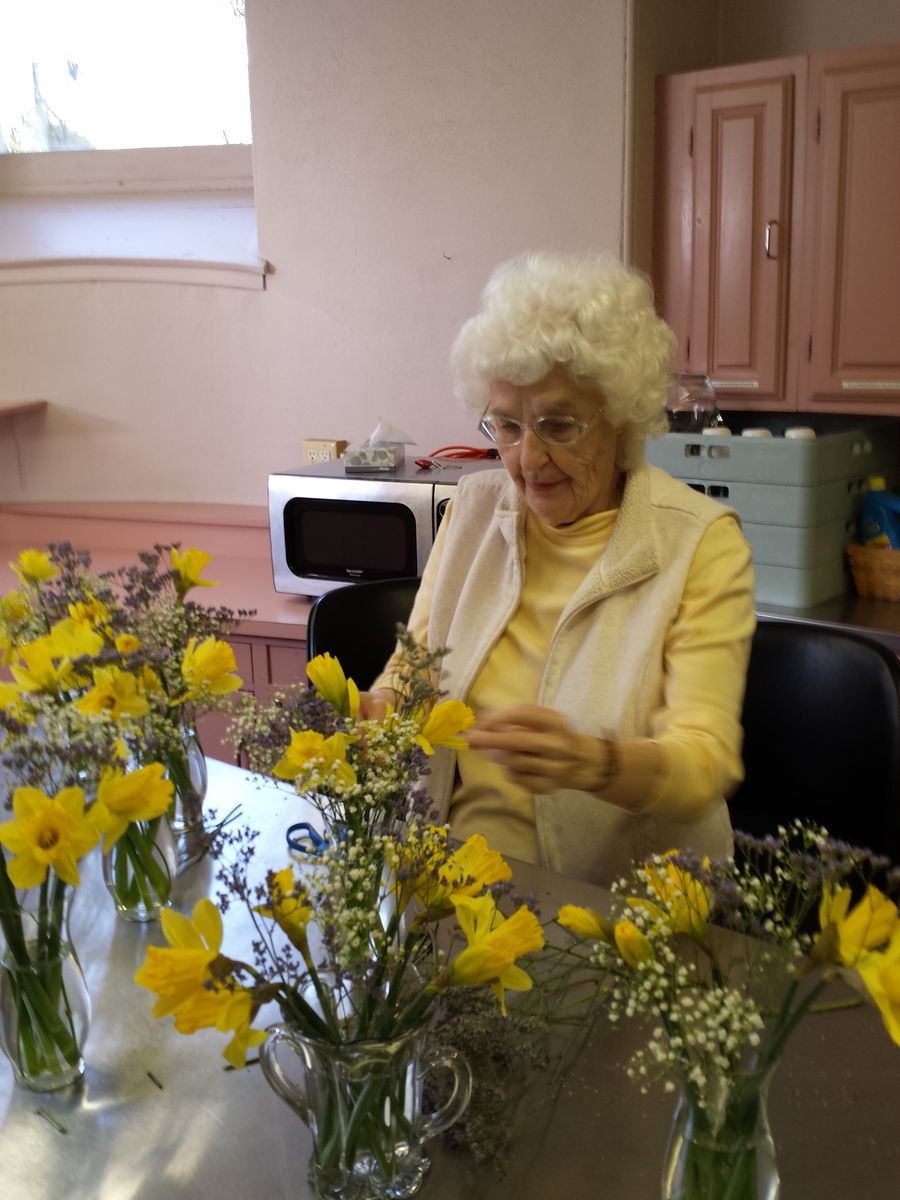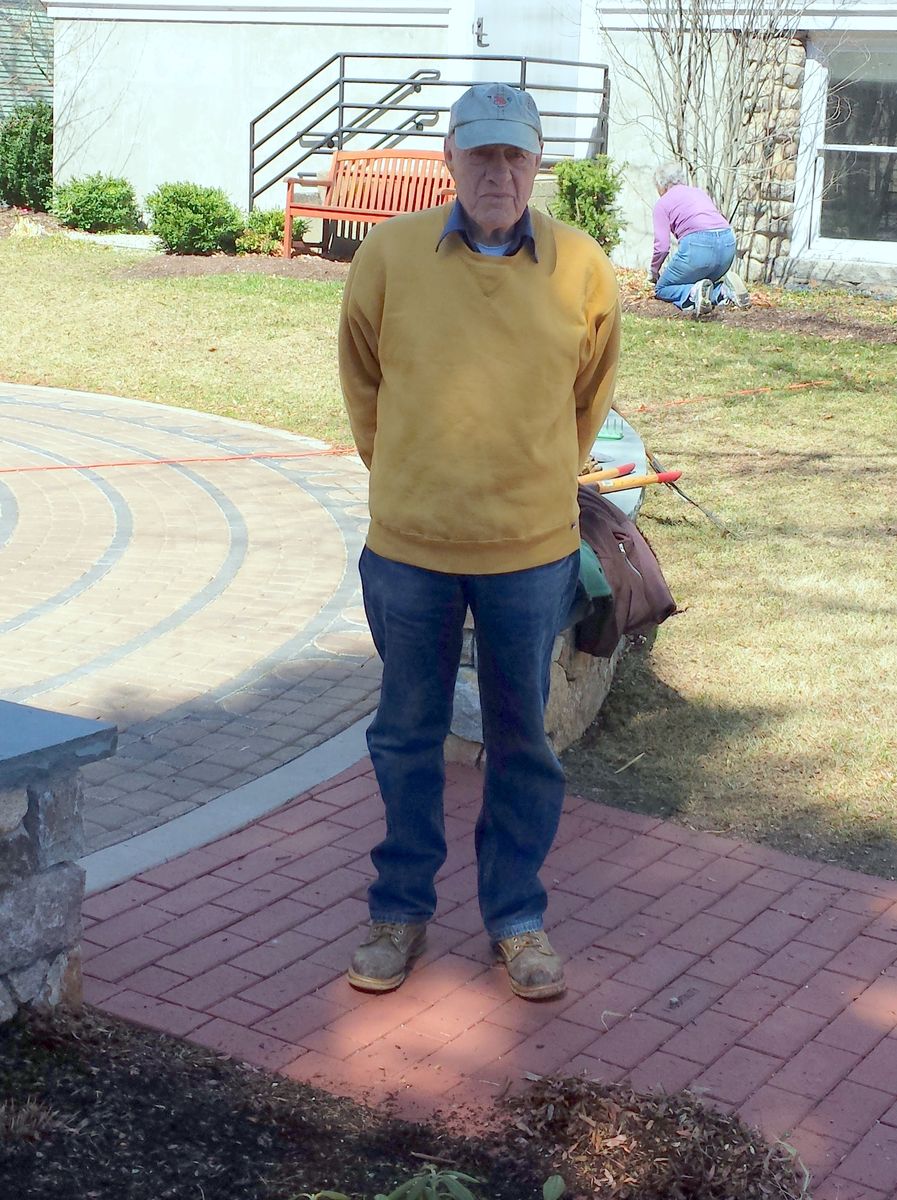Lamentations 3:37-58
“I called on your name, O Lord,
from the depths of the pit;
you heard my plea, ‘Do not close
your ear
to my cry for help, but give
me relief!’
You came near when I called
on you;
you said, ‘Do not fear!’
You have taken up my cause,
O Lord,
you have redeemed my life.” (vv. 55-58)
This is the darkest day of the church year, the greatest test of our faith. The man celebrated as the Messiah entered Jerusalem just six days ago, greeted greeted like royalty by throngs with palms, only to be betrayed, arrested, arraigned on trumped-up charges, and crucified to pacify a fickle mob. Now the fledgling movement he led with forgiveness and healing is bereft, leaderless, faced with teaching the gospel without a guide. They had been warned of this day, but none of the disciples could have been ready. His promised return must have seemed impossibly abstract after the tomb was shut. They were left only with prayer.
The poems of grief collected in Lamentations are harrowing expressions of anguish and loss after the destruction of the temple and Babylonian exile. These poems speak from “the pit” of utter isolation and give voice to a fearful gulf between God and his people. And yet, the mournful cry of the speaker in Lamentations is at once the cry of the disciples for their Lord’s resurrection. And their prayer is answered:
“Do not fear!”
They—and we—have been redeemed. Our Redeemer comes!
Hear our cry, Lord. Comfort us in our need. Renew our belief. Amen.
~David Sw.
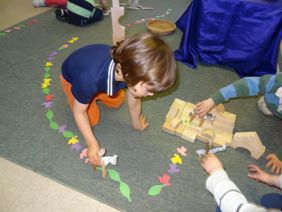 brated Palm Sunday and the beginning of Holy Week by revisiting the book The Easter Story by Brian Wildsmith and recreating the scene of Palm Sunday with donkeys, cloaks, and palms, and blocks (built by the children into the Temple of Jerusalem). We interacted with our storytelling landscape, played “Pin the Cloak on the Donkey,” decorated our Lent
brated Palm Sunday and the beginning of Holy Week by revisiting the book The Easter Story by Brian Wildsmith and recreating the scene of Palm Sunday with donkeys, cloaks, and palms, and blocks (built by the children into the Temple of Jerusalem). We interacted with our storytelling landscape, played “Pin the Cloak on the Donkey,” decorated our Lent en grass baskets to take home, finished our Easter Mural, which is now hanging from the bannister at the church entrance. We had a busy, interactive, and engaging day!
en grass baskets to take home, finished our Easter Mural, which is now hanging from the bannister at the church entrance. We had a busy, interactive, and engaging day!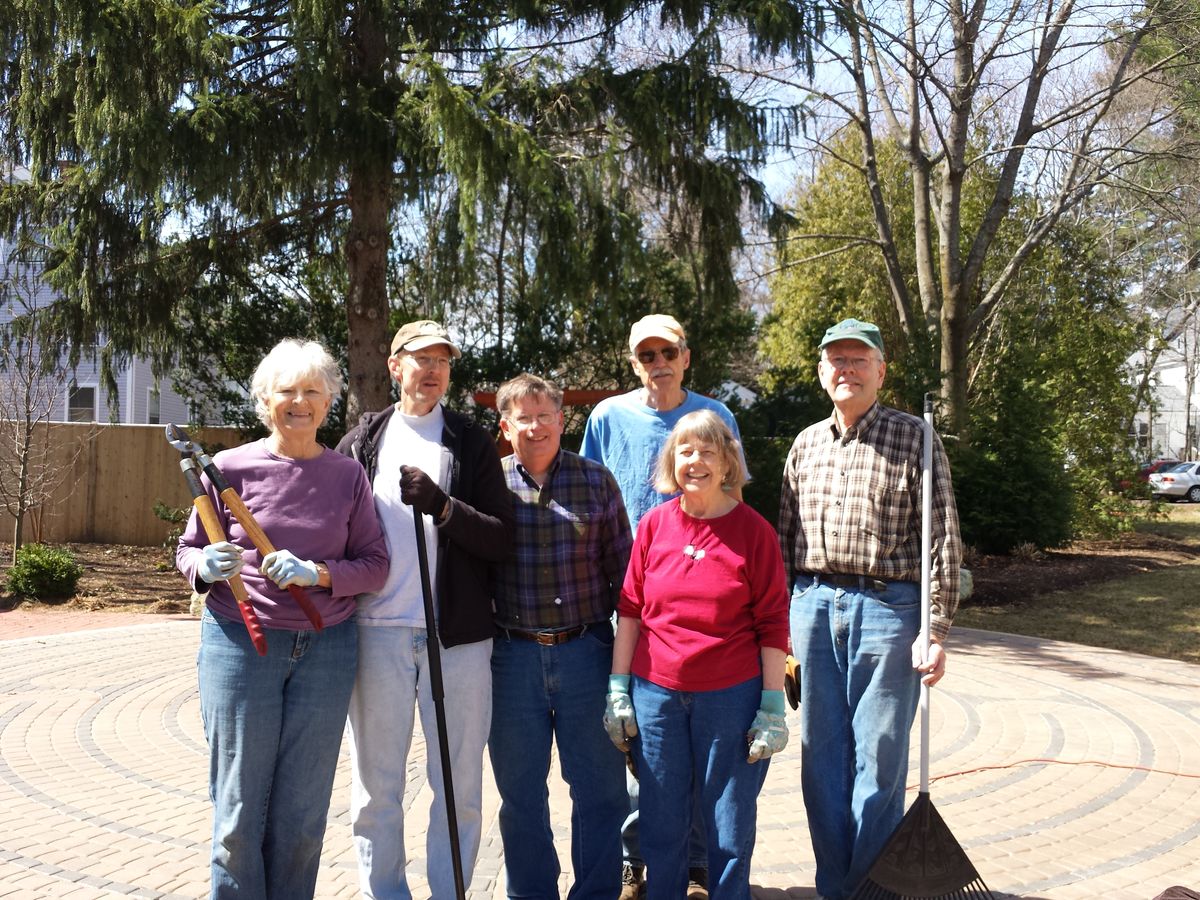 As I was walking up from my house to the Welcome Garden last Saturday, I was joined by a woman who had moved recently to the neighborhood. She noticed that I was carrying pruners and garden gloves and asked me where I was going. I explained. Her response was music to my ears. “Is that the place with the labyrinth? It is so wonderful; it’s like an open ministry to the whole community.” That, of course, is what we had prayed for when we imagined and created the Welcome Garden.
As I was walking up from my house to the Welcome Garden last Saturday, I was joined by a woman who had moved recently to the neighborhood. She noticed that I was carrying pruners and garden gloves and asked me where I was going. I explained. Her response was music to my ears. “Is that the place with the labyrinth? It is so wonderful; it’s like an open ministry to the whole community.” That, of course, is what we had prayed for when we imagined and created the Welcome Garden.